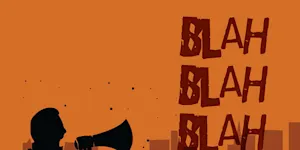What Makes This Word Tick
"Satirical" is a playful word that calls attention to human vices or social quirks through humor, irony, or ridicule. Imagine a comedian holding up a mirror to society, giving us a chuckle and a nudge to think deeper. It's a word on a mission: to critique, entertain, and provoke introspection.
If Satirical Were a Person…
They'd likely be someone like Mark Twain or Jonathan Swift, quick with a dry comment and ready to use humor to illuminate deeper truths. This person might attend dinner parties, delighting guests with their witty repartee while gently skewering the pretensions of the gathered assembly.
How This Word Has Changed Over Time
"Satirical" has roots in ancient Rome, where satire was a literary genre used by poets like Horace and Juvenal to critique society. Over centuries, it expanded beyond literature into other realms, like political cartoons and television shows, always keeping its core mission of critiquing society intact.
Old Sayings and Proverbs That Use Satirical
While there aren't proverbs that directly use "satirical," the sentiment can be found in expressions like “Many a true word is spoken in jest,” which captures the essence of satirical humor delivering harsh truths beneath its jesting veneer.
Surprising Facts About Satirical
Did you know that satire can be traced back to the theater of Ancient Greece? Even back then, audiences relished performances that poked fun at politics and social norms. Today, some of the most satirical voices aren't just authors, but comedians who stand on modern stages—like TV shows radio waves.
Out and About With This Word
You might spot "satirical" in editorial columns, comedy shows, or even museums. Those cheeky political cartoonists, with their exaggerated caricatures and biting commentary, have been using satire to hold power accountable for centuries.
Pop Culture Moments Where Satirical Was Used
From "The Simpsons" to "Saturday Night Live," satirical content has taken center stage in pop culture, making us laugh while reflecting on the absurdities of modern life. These shows owe much of their success to their satirical edge, wittily interpreting current events.
The Word in Literature
Classic works like George Orwell's "Animal Farm" or Swift's "Gulliver’s Travels" offer a satirical glimpse into politics and human nature. They use satire deftly, wrapping serious critiques in imaginative narratives that keep readers engaged and thoughtful.
Moments in History with Satirical
The Enlightenment era in the 18th century was a fertile time for satire, with satirical pamphlets and publications challenging the power structures of the day. Think Voltaire, who with a pen could dismantle authority and champion reason and progress.
This Word Around the World
Different cultures use satire differently — in Britain, it's often dry and understated, while in Italy, it can be more theatrical and verbose. Across regions, satire adapts to reflect cultural nuances, shaping its form to the sensibilities of its audience.
Where Does It Come From?
"Satirical" stems from the Latin "satura," which means "a dish of mixed ingredients." Much like its culinary namesake, satire combines a variety of elements—humor, irony, exaggeration—to serve a dish rich with criticism.
How People Misuse This Word
Sometimes "satirical" is mistakenly used to describe humor that’s merely mocking or mean-spirited, without the critical lens or constructive aim that true satire embodies.
Words It’s Often Confused With
Sarcasm: Both involve irony, but sarcasm is typically more biting and less constructive.
Parody: Parody mimics the style of something for comedic effect, which can be satirical but not always.
Irony: A key ingredient in satire, but irony alone doesn’t create satire.
Additional Synonyms and Antonyms
Synonyms: Ironic, sardonic, lampooning
Antonyms: Serious, earnest, sincere
Want to Try It Out in a Sentence?
The conversation quickly turned satirical as the host began to lampoon the dinner party rituals, to the amusement and chagrin of the guests.
















